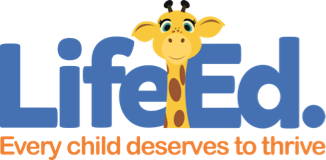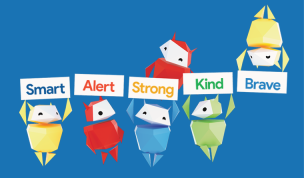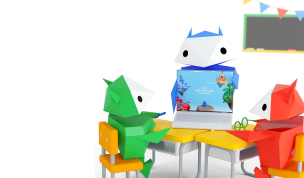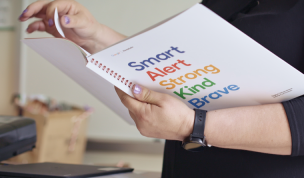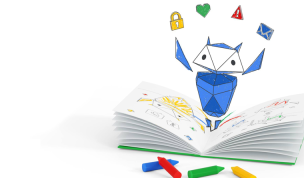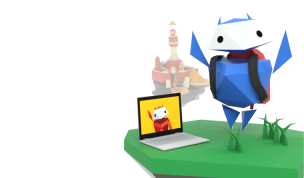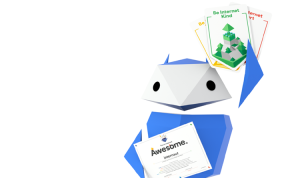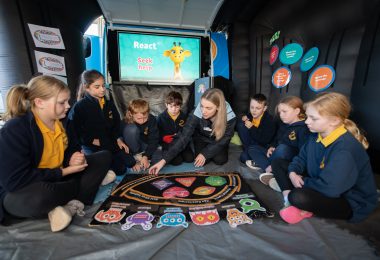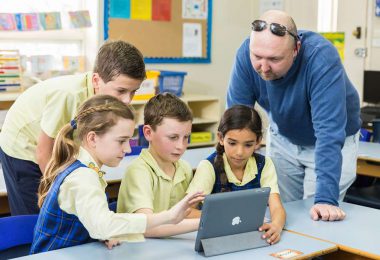FAQs
Jump to...
Our FAQ section is here to help. If you can’t find what you’re looking for, we’re always happy to have a chat.
The Life Ed Program
Consisting of 16 different modules, our program has been specially designed for preschools, primary schools and secondary schools.
Our program is delivered by a team of specially trained educators using highly interactive exercises and techniques. In recent times, in response to the COVID-19 pandemic, our program is also available online.
Definitely not a one-off intervention. Our program is designed to engage students from an early age and to be sequential; delivered year-on-year, building on learnings throughout preschool and primary school into secondary school.
Our program covers topics including; drugs and alcohol, personal safety, cybersafety, food and nutrition, physical activity, social and emotional wellbeing and the human body.
Healthy Harold has been visiting preschools and primary school with us for more than 45 years and there are no signs of him slowing down. He doesn't, however, accompany us into secondary schools though.
Mobile Learning Centres are used in most primary schools. Our pop-up classrooms are available for use in primary schools in selected locations. Preschool visits are facilitated in your learning environment.
The preschool and Kindergarten - Year 2 modules run for 60 minutes. The Year 3-6 modules run for 90 minutes.
Depending on the length of the module booked, we suggest 2-4 sessions per day.
Life Ed is the largest non-Government provider of preventative health education to Australian children. Our specialist educators, along with our much loved mascot Healthy Harold the giraffe, and supported by our online resources, teach children important health and wellbeing lessons, so they can thrive. For more information about costs and to enquire about a visit for your centre.
Yes, we work with teachers to tailor all sessions to the students in each class that we visit. This is to ensure their needs are met, their safety is prioritised and they can get the most out of their learning experience with us.
All Life Ed staff, including our 130+ Educators that visit schools, are 100 per cent compliant in Working With Children Checks and Police Checks. All Life Ed compliance records are tracked in real-time using the reputable Oho online system to ensure the safety of children can be maintained at all times by every member of our team.
All Life Ed staff, including our 130+ Educators that visit schools, are 100 per cent compliant in Working With Children Checks and Police Checks. All Life Ed compliance records are tracked in real-time using the reputable Oho online system to ensure the safety of children can be maintained at all times by every member of our team.
We work with schools to ensure that every Life Ed staff member onsite is across all relevant school and emergency protocols.
It is also mandatory for all Life Ed staff to have obtained a valid Working With Children Check and Police Check ahead of commencing employment with us. We carefully track and manage all worker accreditation through the reputable Oho online system. This allows us to ensure everyone who is on our team is 100 per cent compliant with all important checks and clearances required when working with children, so you can be 100 per cent confident that your child is safe while they are learning with us.
It is also mandatory for all Life Ed staff to have obtained a valid Working With Children Check and Police Check ahead of commencing employment with us. We carefully track and manage all worker accreditation through the reputable Oho online system. This allows us to ensure everyone who is on our team is 100 per cent compliant with all important checks and clearances required when working with children, so you can be 100 per cent confident that your child is safe while they are learning with us.
The state offices can provide you with the scheduled educator’s WWCC number. The educator will also provide 100 point identity check when they arrive at the school.
Topics We Cover
Browsing the internet, online gaming, social media and streaming media - the use of online technology is growing every day. We prepare children to make safe choices online for themselves and others they interact with. Ranging from browser and security tips to being a responsible digital citizen.
Relevant modules:
- bCyberwise
- Relate, Respect, Connect
Relevant modules:
- bCyberwise
- Relate, Respect, Connect
Health education is key to preventing harms associated with the misuse of alcohol and other drugs. Our approach to drug education is building year on year with age and stage appropriate content and delivery methods, which are linked to both the Australian Curriculum and the NSW PDHPE Syllabus. In preschool and lower-middle primary school children learn about safety around medicines, in upper primary, our Decisions module teaches children about the effects that legal and illegal drugs have on the body and our Face The Facts module extends the learning for secondary school students.
Relevant modules:
- Decisions
- Think Twice
Relevant modules:
- Decisions
- Think Twice
'You are what you eat' doesn't have a literal meaning but is a good representation of our approach to food and nutrition. By sharing with students the impact different foods have on our bodies, they are able to make informed (and healthier) choices.
Relevant modules:
- My Body Matters
- The Inside Story
- Growing Good Friends
Relevant modules:
- My Body Matters
- The Inside Story
- Growing Good Friends
Our preschool and early primary modules cover four key areas of safety:
- Sun safety: making healthy choices in the sun.
- Water safety: staying safe in and around the water.
- Road safety: how to stay safe on and near roads.
- Personal safety: seeking safe spaces and how friends can support us.
Relevant modules:
- Super Safe Harold
- Harold's Big Feelings
- My Body Matters
- Safety Rules
- Growing Good Friends
- Sun safety: making healthy choices in the sun.
- Water safety: staying safe in and around the water.
- Road safety: how to stay safe on and near roads.
- Personal safety: seeking safe spaces and how friends can support us.
Relevant modules:
- Super Safe Harold
- Harold's Big Feelings
- My Body Matters
- Safety Rules
- Growing Good Friends
Healthy Harold loves to be active, and so do we! Not limited by our Mobile Learning Centres, our educators encourage all participants (including the teachers) to get physically active during our sessions. This helps students to understand the difference being active, or not, makes to our health.
We do not strictly dictate that children should exercise (program-driven) or play sport (as barriers may prevent some from taking part) specifically. Everyone can choose to be active, however, in a way that suits their needs and situation.
Relevant modules:
- My Body Matters
- The Inside Story
- Growing Good Friends
We do not strictly dictate that children should exercise (program-driven) or play sport (as barriers may prevent some from taking part) specifically. Everyone can choose to be active, however, in a way that suits their needs and situation.
Relevant modules:
- My Body Matters
- The Inside Story
- Growing Good Friends
Building year on year with age-appropriate and relevant content around friendships, respectful relationships, bullying and understanding emotions our emotions. The modules listed below have grown in popularity as we realised the critical nature of these skills in our community.
Relevant modules:
- Harold's Friend Ship
- Growing Good Friends
- Friends & Feelings
- Relate, Respect, Connect
- Think Twice
Relevant modules:
- Harold's Friend Ship
- Growing Good Friends
- Friends & Feelings
- Relate, Respect, Connect
- Think Twice
Exploring the wonder and amazing design on the human body. Our program helps children better understand their bodies; their brilliant design and workings, how to care for them and how they are impacted by our choices.
Relevant modules
- My Body Matters
- The Inside Story
- Think Twice
- Decisions
Relevant modules
- My Body Matters
- The Inside Story
- Think Twice
- Decisions
Regular giving
Your donations will be used to support the delivery of the Life Ed program.
As a charity, Life Ed relies on donations to continue and extend our work. Last year we empowered 600,000 Australian children with the skills and knowledge they need to make safe and healthy choices. We believe every child deserves this opportunity and with your support, we can make this happen.
Life Ed Shop
Of course! After adding products to your cart, you can add, remove or update the quantity of any products in your shopping cart.
Payments are available for via VISA and Mastercard
Ordering online is easy in the Healthy Harold shop. Simply choose your product, add it to the cart and complete the checkout when you’re ready.
We aim to dispatch all orders within 2-3 working days. This enables us to deliver most purchases within 7 working days to metropolitan areas. Items that are travelling further from our Sydney warehouse can take longer.
A fixed rate shipping and handling fee of $9.95 applies to all orders.
All prices noted in our online store include GST (Goods and Services Tax) at the current rate of 10%.
Our Terms & Conditions cover your rights and responsibilities as an online consumer. For full details please see our terms & conditions.
Our online team take every care to ensure that you are sent the correct item, free from any quality defects. However, if you do receive an incorrect or faulty item please contact us or call (02) 9673 3222 to arrange a replacement item or refund. Postage and packaging for the replacement item will be free of charge.
We are happy to accept any item for exchange or refund within 30 days of your date of purchase, provided it is in its original condition and has not been worn, washed or used. Refer to the terms & conditions for more details.
The Guide To Thrive
Designed for teachers and families of year 6 and 7 students, Life Ed’s evidence-based Guide to Thrive program is a change tool kit that will arm students with the survival skills, expert knowledge and creative inspiration to help them thrive in secondary school and beyond.
Guide to Thrive is a free toolkit containing more than 45 evidence-based resources to help teachers guide students as they embark upon the exciting but sometimes daunting move to secondary school. It's been designed to make life easier for teachers, the program offers flexibility and most importantly saves time! The teacher/student learning process has four simple steps. These are outlined below.
1. Review the Research & Design – immerse yourself in the extensive research that underpins the Program.
2. Start with the Teacher Professional Development (PD) - self-paced and flexible, these are mapped to AITSL teaching standards.
3. Implement the practical activities in the Classroom Implementation stage - embedding the learning from the PD into practice.
4. Review the Support for Parents & Carers – including complementary resources for parents and carers to help secondary school transition.
1. Review the Research & Design – immerse yourself in the extensive research that underpins the Program.
2. Start with the Teacher Professional Development (PD) - self-paced and flexible, these are mapped to AITSL teaching standards.
3. Implement the practical activities in the Classroom Implementation stage - embedding the learning from the PD into practice.
4. Review the Support for Parents & Carers – including complementary resources for parents and carers to help secondary school transition.
Our evidence-based program shines a light on important topics including:
✔ How to ease student academic and social fears
✔ Ways to manage changing school workloads
✔ Learning the logistics of navigating to, from and around school
✔ Creating productive communication between parents, teachers and schools
✔ How to make new friends
✔ And tailoring support for students with special needs
✔ How to ease student academic and social fears
✔ Ways to manage changing school workloads
✔ Learning the logistics of navigating to, from and around school
✔ Creating productive communication between parents, teachers and schools
✔ How to make new friends
✔ And tailoring support for students with special needs
Yes, the Guide to Thrive program, was developed by Life Ed, thanks to funding from the Australian Government. Life Ed engaged the Australian Council for Educational Research (ACER) to be their educational research and development partner to work with Life Ed on all aspects of the design, development and implementation of the student forums and report on the findings. Life Ed’s study is Australia’s largest-ever qualitative student research into school transition challenges. It included more than 80 face-to-face focus groups of 444 school children aged 10-14 from 15 schools across metropolitan, regional, and remote areas. Off the back of the study, Life Ed developed Guide to Thrive, an Australian first production of resources for teachers, students, parents and caregivers, that utilises student voice to directly inform its development.
The full study 'What Australian students say about transition to secondary school' can be accessed via the link below.
The free teacher and parent/carer resources will support students to ensure their transition from primary to secondary school is successful, healthy, socially and behaviourally positive. The resources will also focus on assisting students to increase their own capacity to manage change.
